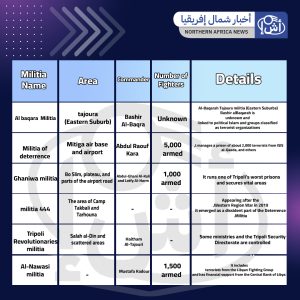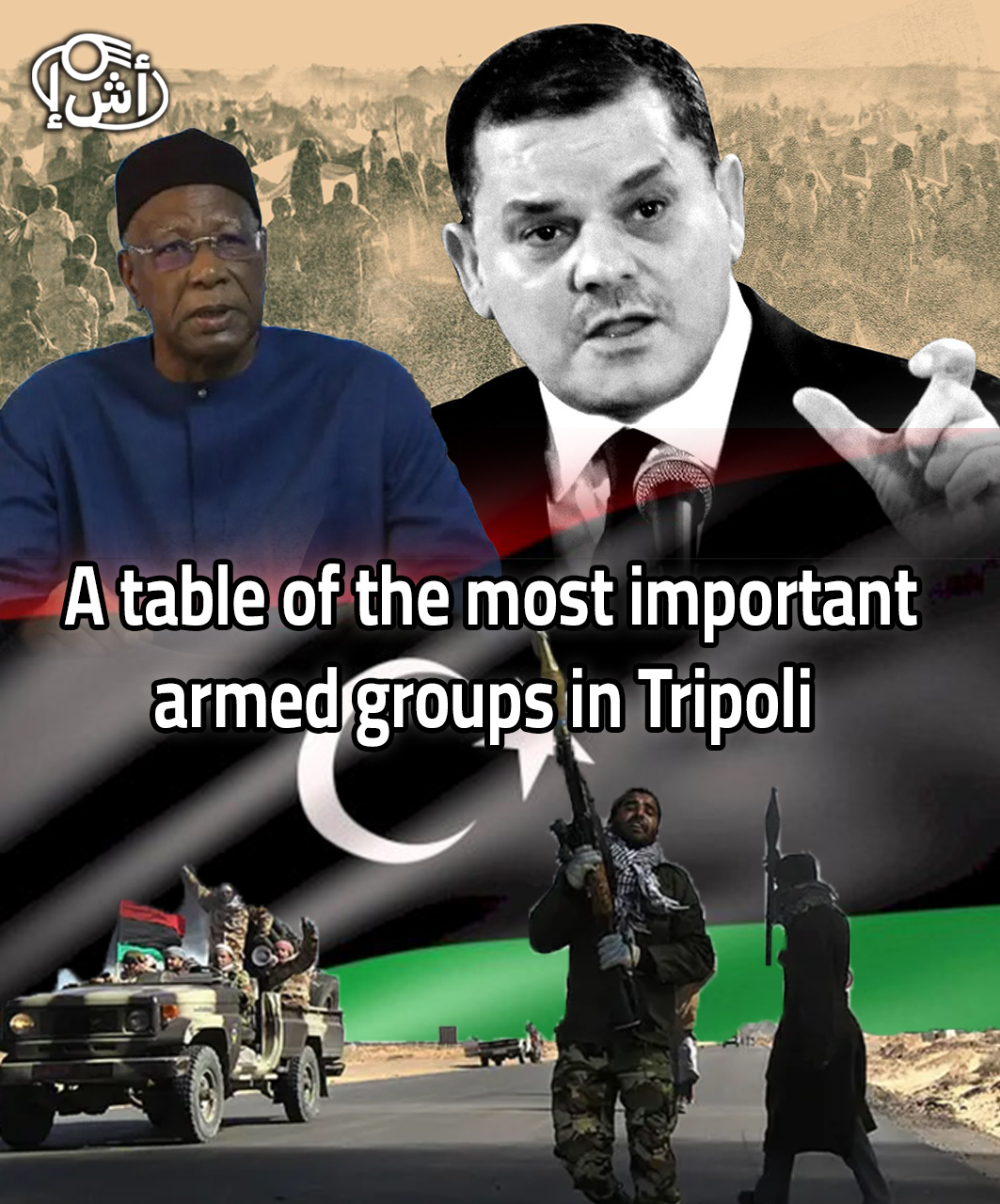The resignation of the UN envoy to Libya, Abdallah Bathili, restores the image of violence and the overlap between the political crisis and the chaos of armed groups.
The accusations levelled by Tripoli against the UN envoy of bias stand on a panorama witnessed by western Libya, as the election project was not just political arrangements and consensuses but dealt with a military reality imposed by different armed groups with the political space.
Days before Batelli’s resignation, armed clashes broke out during Eid al-Fitr as part of the sporadic wave of violence in the city, and despite the agreement to end the military presence in Tripoli a month ago Ramadan, the confrontations between the armed factions remained within the broader picture of all political activity that stands in the way of the multiplicity of military references.
Composite Military Map
At the end of last year, the outgoing Prime Minister, Abdul Hamid Dbeibeh, was subjected to an embarrassing situation while trying to travel from Mitiga airport to the city of Misrata to attend an event at the Military Academy, accompanied by prominent field commanders, including the commander of the 444th Brigade, Mahmoud Hamza, who was arrested by members of the Special Deterrence Force, and this incident shows the extent of power enjoyed by armed groups in Tripoli and their ability to boldly challenge the central government authority.
The event had quick repercussions, as a state of emergency was declared in the ranks of the 444th Brigade, and its units quickly responded by returning from Tarhuna and Bani Walid to the southern suburbs of Tripoli, and the Deterrence Brigades began to prepare for possible confrontations, followed by clashes in several areas of the capital, in which heavy and medium weapons were used, in a way that made government authorities unable to control the security situation.
Militias in Tripoli and the western region have great power, often replacing the authority of the official government, and they are not only strong, but also ready to engage in bloody conflicts or even organize coups for power control, and have clear dynamics of power, and this is evident in the interventions of the 444th Brigade, which consists mostly of professional soldiers from the brigade. The former ninth in Tarhuna, in major political confrontations and maneuvers, to change the political equations through military action.

Table of the most important armed groups in Tripoli
Corruption and economic manipulation
Dbeibeh’s government appeared as a reflection of the military map, as it was not far from the conflict of armed groups, and the 444th Brigade was one of its wings amid the chaos of weapons that pervades Tripoli, in contrast, this brigade received special attention from the United States, reports talked about organizing a field tour for a delegation from the US Department of Defense at the headquarters of the Brigade “444” in the Libyan capital, Tripoli, and this step makes it clear that the issue of armed groups is part of the international conflict, where “political legitimacy” is built on the balance between These groups, which made the Dbeibeh government interested in financing many groups, and its focus was on managing Libyan financial resources, especially control of the Central Bank of Libya, in addition to its conflict within the institutions that manage Libyan oil, as government contracts are allocated on the basis of personal affiliations rather than public benefit. These practices have not only perpetuated corruption but have also exacerbated societal divisions.
This reality led in Tripoli to deepen the political impasse, and made the issue of elections an attempt to “buy time”, and the search for “political legitimacy” based mainly on the nature of the military map in eastern Libya in general, as the emergence of the Government of National Unity was the subject of many doubts, and its dismissal by the Libyan Parliament reflects the state of mistrust that appeared simultaneously with the start of the political process in 2021, as the protests against the Dbeibeh government that escalated at the beginning of this year highlight the contradiction left by the political process, The inability to devise a mechanism that delegitimizes armed groups within the political scene.
The photo in the city of Misrata, Dbeibeh’s hometown, presents the depth of what the Tripoli government is facing, as political, civil, and social forces began to form alliances to overthrow Dbeibeh, and paved the way for the formation of a new government to organize general elections in the country.
Since the beginning of the year, Misrata has witnessed successive meetings and the emergence of a movement led by opponents of the government’s policies demanding that it step down from power, and the formation of a government that can truly assert its authority.
The resignation of Abdullah Bathili is the culmination of the political impasse, and talking about Stephanie Khoury as his successor may create ways out for Dbeibeh from the worsening political impasse around him, as eastern Libya is a space of opportunity for all American and European interests, and it is also a point to strengthen Washington’s role in the conflict over Africa from the Libyan gate.
The United States of America aims to continue chaos in Libya through its constant attempts to thwart international attempts to bring the Libyan parties together to reach a political solution that gets the country out of its crisis and prevent its division, as Washington works to support the government of Abdul Hamid Dbeibeh, which has failed throughout its administration to hold the reins and deepen the state of division between the political parties in the country and implement foreign agendas in a way that serves the interests of those countries in seizing the country’s wealth, in addition to the spread of corruption within the joints of the country. State institutions, and increased lawlessness as a result of the failure of the Dbeibeh government to tighten control over the armed factions, especially those fighting among themselves in Tripoli.
Written by Nidal Al-Khedary
Two Libyan rap stars talk about the beauty of Russia and its people after their visit (video)
